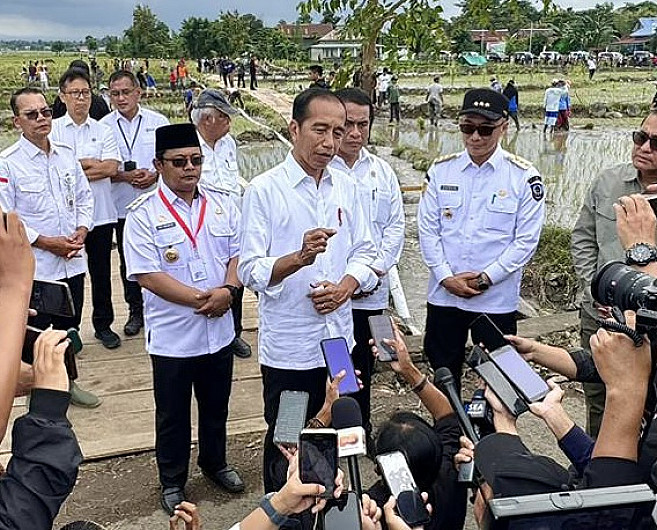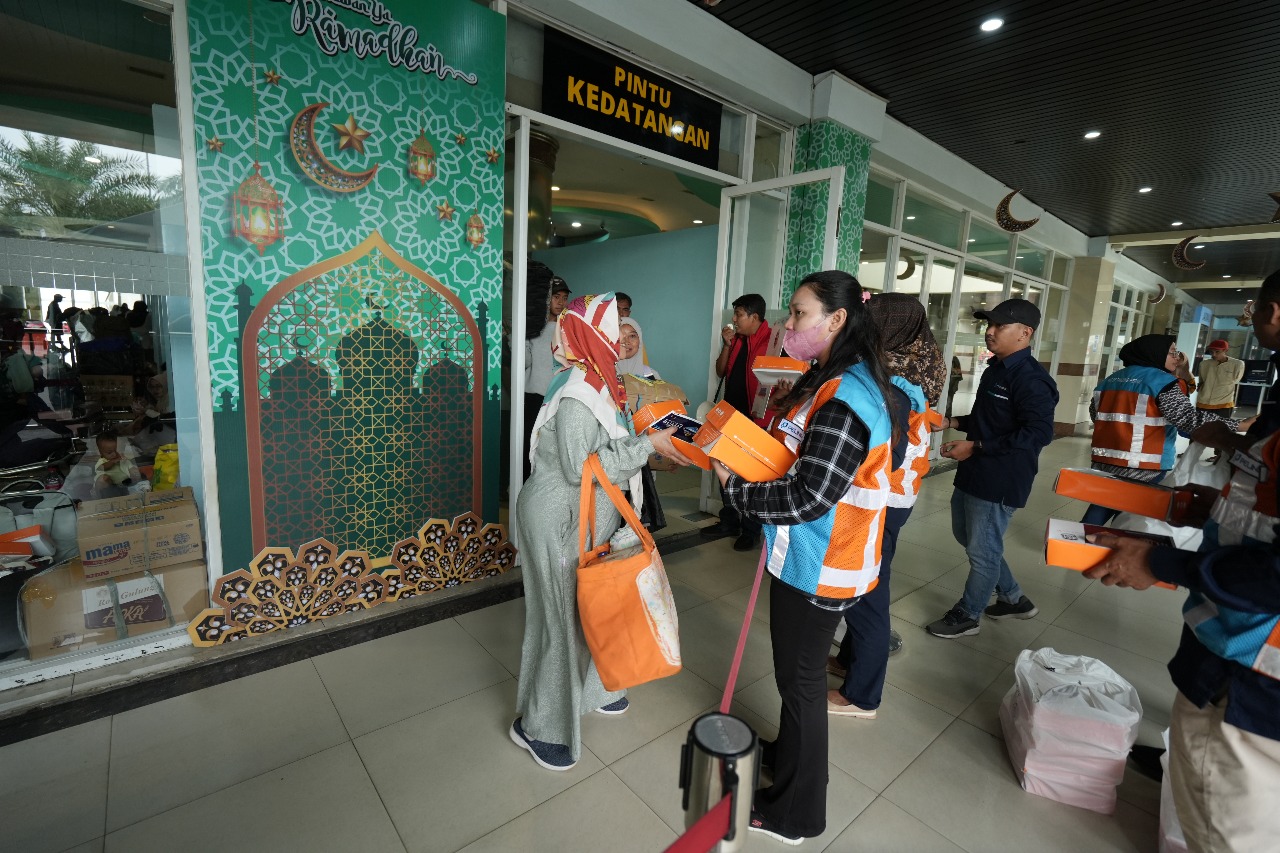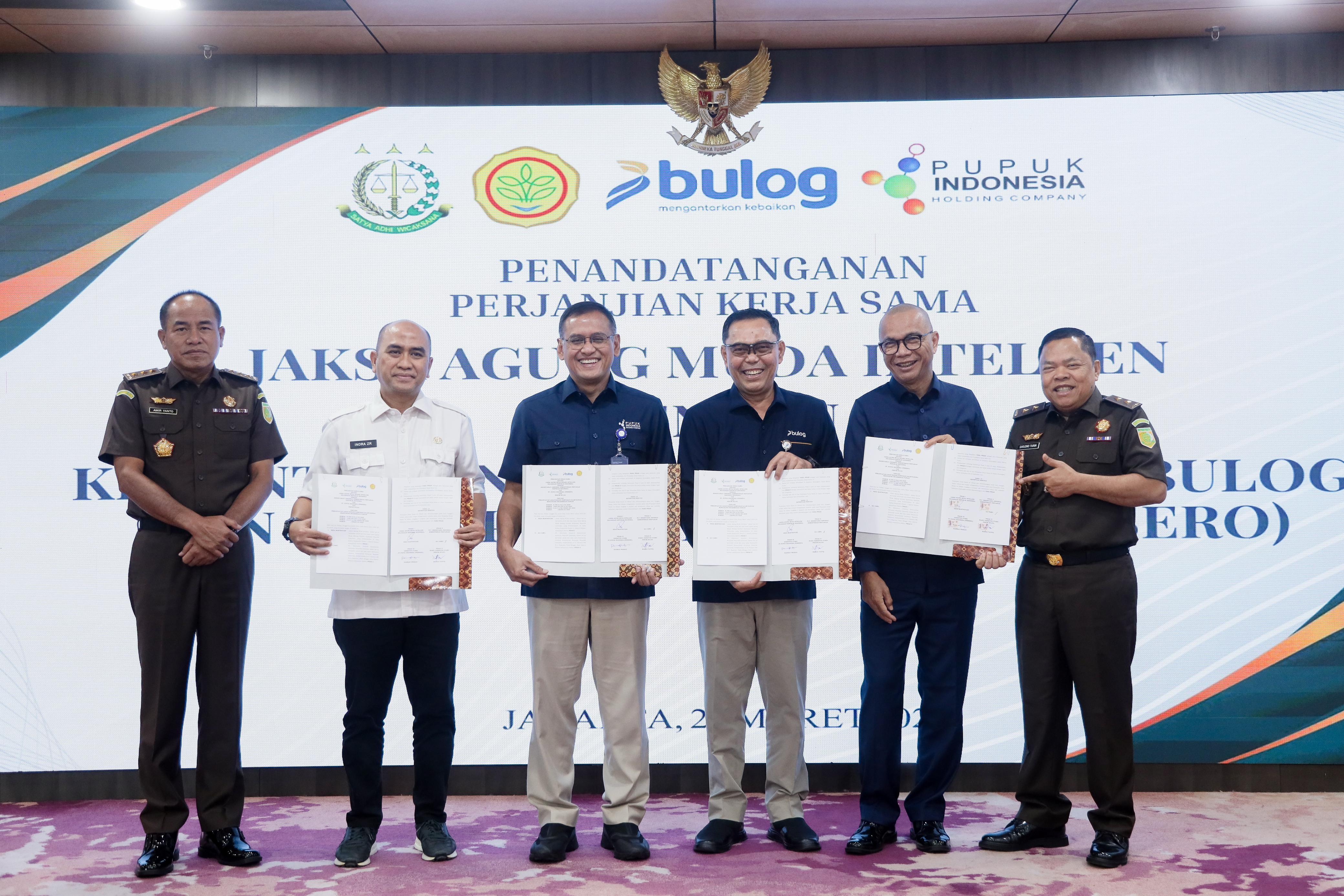Supporting National Food Security, Pupuk Indonesia Ready to Meet Farmers' Fertilizer Needs in South Sulawesi

Bantaeng, July 6, 2024 - PT Pupuk Indonesia (Persero) supports the Government's program to boost rice productivity in South Sulawesi Province (Sulsel). This support is provided through the readiness of stocks and the ease of subsidized fertilizer redemption for farmers in Sulsel.
President of the Republic of Indonesia, Joko Widodo, during his visit to the agricultural area in Gantarangkeke District, Bantaeng Regency, South Sulawesi, on Friday (July 5, 2024), stated that farmers in Bantaeng have only been able to plant rice once a year due to water scarcity. The government, through the Ministry of Agriculture, has provided 80 irrigation pumps so that farmers can plant rice up to three times a year.
"I came to Bantaeng Regency to see the installation of the irrigation pumps. Farmers here said they could only harvest once because there was no water. With these pumps, they are now on their second planting. We hope they can move on to the third planting. This will increase our national rice productivity," said the President.
To optimize the rice productivity improvement program in Sulsel to enhance national food security, the President Director of Pupuk Indonesia, Rahmad Pribadi, who accompanied the President on the visit to Bantaeng, ensured the readiness and ease of subsidized fertilizer redemption for farmers in Sulsel.
"The government has increased the allocation of subsidized fertilizer in 2024 from 4.7 million tons to 9.55 million tons. To support agricultural productivity in maintaining national food security, Pupuk Indonesia ensures the availability of subsidized fertilizer stocks in various regions according to regulations and facilitates farmers in redeeming subsidized fertilizer," said Rahmad Pribadi.
Currently, he added, farmers registered as recipients of subsidized fertilizer can simply go to kiosks with their ID cards to redeem the fertilizer. This convenience comes after Pupuk Indonesia implemented the i-Pubers application in 27,000 kiosks across Indonesia.
Rahmad also explained that Pupuk Indonesia continues to tighten the supervision of subsidized fertilizer distribution to ensure it is targeted. Farmers eligible for subsidized fertilizer must meet the criteria outlined in the Minister of Agriculture Regulation (Permentan) Number 1 of 2024, which includes being a member of a farmer group, registered in the Agricultural Extension Management Information System (SIMLUHTAN), and cultivating a maximum of two hectares of land.
In addition, the strategic commodities eligible for fertilizer subsidies are limited to nine commodities: rice, corn, soybeans, chili, shallots, garlic, coffee, sugarcane, and cocoa.
Pupuk Indonesia provides a national stock of 1,209,509 tons of subsidized fertilizer, consisting of 688,936 tons of urea and 520,573 tons of NPK, including Special Formula NPK. From this national stock, the availability in Sulsel is recorded at 819,803 tons, consisting of 170,116 tons of subsidized urea, 126,346 tons of NPK Phonska, and 3,180 tons of NPK Kakao.
The stock currently prepared by Pupuk Indonesia for farmers in Sulsel amounts to 79,777 tons. This supply includes 39,764 tons of subsidized urea, which is about 244 percent of the minimum stock regulated by the Government, which is 16,300 tons.
The next stock includes 36,436 tons of NPK Phonska or 246 percent of the minimum requirement of 14,808 tons, and 3,577 tons of NPK Kakao or 212 percent of the minimum requirement set by the Government of 1,865 tons.
All stocks as of July 2, 2024, are currently in Level III warehouses at the regency/city level, ensuring the supply of fertilizers for farmers in Sulsel for the next 14 days.
To ensure the smooth distribution of subsidized fertilizer in Sulsel, Pupuk Indonesia has also prepared several supporting facilities. These include 4 Level II warehouses and 43 Level III warehouses, 53 distributors, 1,105 kiosks, and 30 field officers who will ensure that all farmers entitled to subsidized fertilizer receive it according to regulations.
"We hope that these stocks and allocations of subsidized fertilizer can be optimized by farmers to increase agricultural productivity and farmers' welfare, and to maintain national food security," concluded Rahmad Pribadi.







